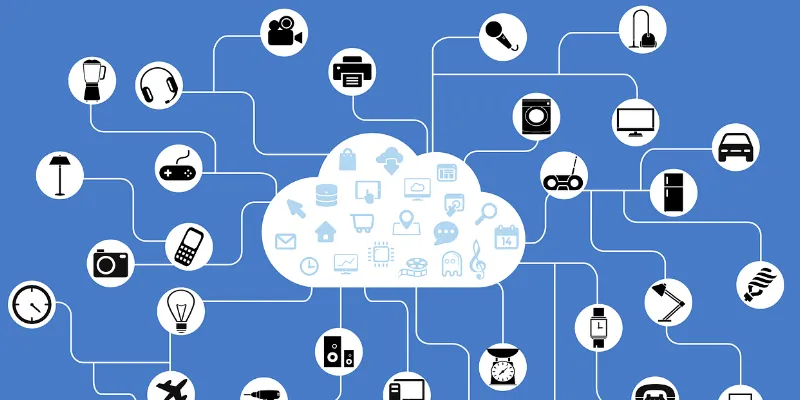Future connected: Will Internet of Things make India smarter?
Companies like Bosch, Sun Mobility, Bezirk, ION Energy and i2e1 are going to change industries from agriculture to automotive to retail with automation in India
On the highways that connect Bangalore and Mumbai, Volkswagen, the German car manufacturer, is testing its new crossover Tiguan these days. More than 200 sensors in this car capture data from the engine, brakes and the transmission box using software and beam them to the cloud for real-time analysis, making it smarter than anything else on Indian roads.
In Germany, this car, with its adaptive cruise control, can drive itself on long journeys. It uses safe distance technology with the help of a radar sensor, which detects traffic and brings down the speed of the car. If necessary, the system will bring your car to a complete stop.
This car may sport a foreign tag, but some of the software inside comes from India from the likes of Bosch and Continental.

Robert Bosch Engineering in Bengaluru is building a cloud platform on which an entire fleet of cars and their data can be managed. The data can be used by the government and automobile companies to understand their customers and offer services as per their demands. From predictive and prescriptive maintenance services of the car to civic and retail information services, it would be possible to offer all of these over the cloud.
Today, automobile companies like Mahindra & Mahindra (M&M) are tracking over 5,000 tractors using sensors and understanding their usage patterns thanks to the cloud.
This new business model, which entails the use of car-to-car data, car-to-infrastructure data and car-to-city data, is expected to become a reality in a decade.
Maruti Suzuki is already integrating Android Auto and Apple’s CarPlay into its cars where certain apps of the phone can be mirrored on to the telematics unit of the car. By 2018, Volkswagen plans to take all data emerging from its cars to its data centres on a real-time basis.
“Connectivity is here to stay and shared mobility services are just starting to take shape in new business models,” says Jan-Oliver Roehrl, EVP of engineering at Bosch, while addressing the Future Connected conference in Delhi. He says in future young people will buy cars for the efficiency of software and not for the engine anymore.
There are 180 million vehicles in India and each of these solutions can help to understand consumers in the future.
"Connected solutions are coming to India faster than you think. Our camera sensors use AI to enforce traffic laws. We are able to manage bus fleets on real-time traffic and we also have real-time pollution monitors," says Vijay Ratnaparkhe, MD of Robert Bosch Engineering India.
Data explosion and the consumer
This explosion of data, thanks to the Internet of Things (IoT), is giving rise to a whole host of cutting-edge analytics. Companies like Bezirk, i2e1 use data of corporations to understand how their consumers are using connectivity to interact with physical retail ecosystems. These companies then push customised advertising to users and induce the customer to spend more in the retail set-up.
“Companies finally want to make sense of their data collected on their CRM applications and they want to dynamically engage with their customers,” says SM Hemanth, Co-founder of the startup Bezirk.
India's organised retailing industry is $60 billion in size, but it's yet to loosen its purse-strings to buy technologies that can connect it to the consumer directly. Shoppers Stop along with Arvind Retail have charted plans to make money with cloud-based technologies. IoT sensors will be placed across shops to enable smartphone based interaction and experience in stores.
This is not limited to retail alone. The whole electric mobility industry is gathering steam.
The NITI Aayog announced a couple of months ago that by 2030 India will have an all-electric fleet. The news was met with a lot of interest, but OEMs such as M&M and Tata Motors raised questions about infrastructure availability and affordability. The government is yet to provide a road map for an all-electric fleet by 2030.
Chetan Maini, Founder of Sun Mobility, says that with solar power cost falling per unit it would become viable to set up electric vehicle infrastructure across the country. India has 12,500 MW of solar energy and is expected to cross 20,000 MW by 2020. Solar energy now costs as low as Rs 3 per unit at the grid level. “Now the business of storing this energy in batteries and building an electric vehicle fleet with batteries that can be swapped rather being fixed permanently in the vehicle, is clearly the future,” he says.
Factories that build batteries will have IoT controlling the lines with robots interacting with vehicles as they approach the station for batteries to be replaced. Although this sounds like science fiction, investments have been made to make this a reality.
The future
Software is going to be the centre of everything; it will connect farms, homes, cars, and offices. In the farms of Nilgiris, a company called Aibono is already aggregating farm produce and productivity with technology. It has also linked the supply chain to institutional buyers (retail chains and restaurants) in cities on a demand basis.
Soumitra Bhattacharya, Managing Director of Bosch, says,
“Relative to the rest of the world we are lucky in India because software is the brain and India powers it.”
He, however, adds that with increased automation the organised sector in India needs reskilling which must bring down inefficiencies. “Industry 4.0 is reskilling and not job losses,” Soumitra says.
The future is now in automation. How India braces for its impact on education, employment, and social interaction is something which policy makers must take cognisance of, or else we will have a largely divided society struggling with information and economic poverty.







